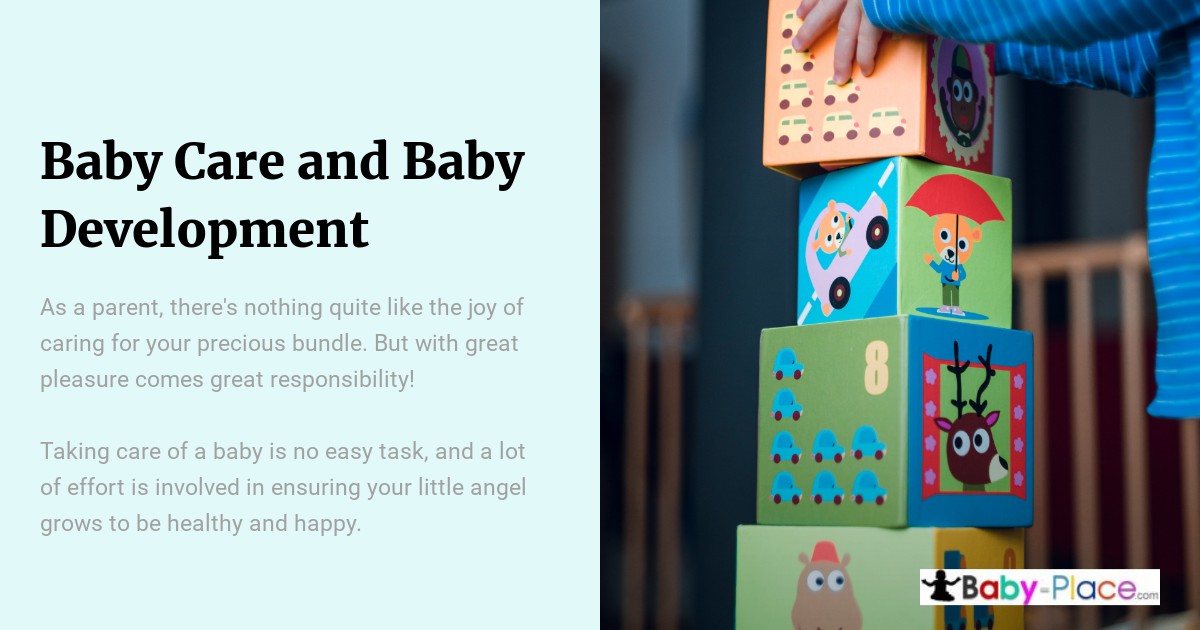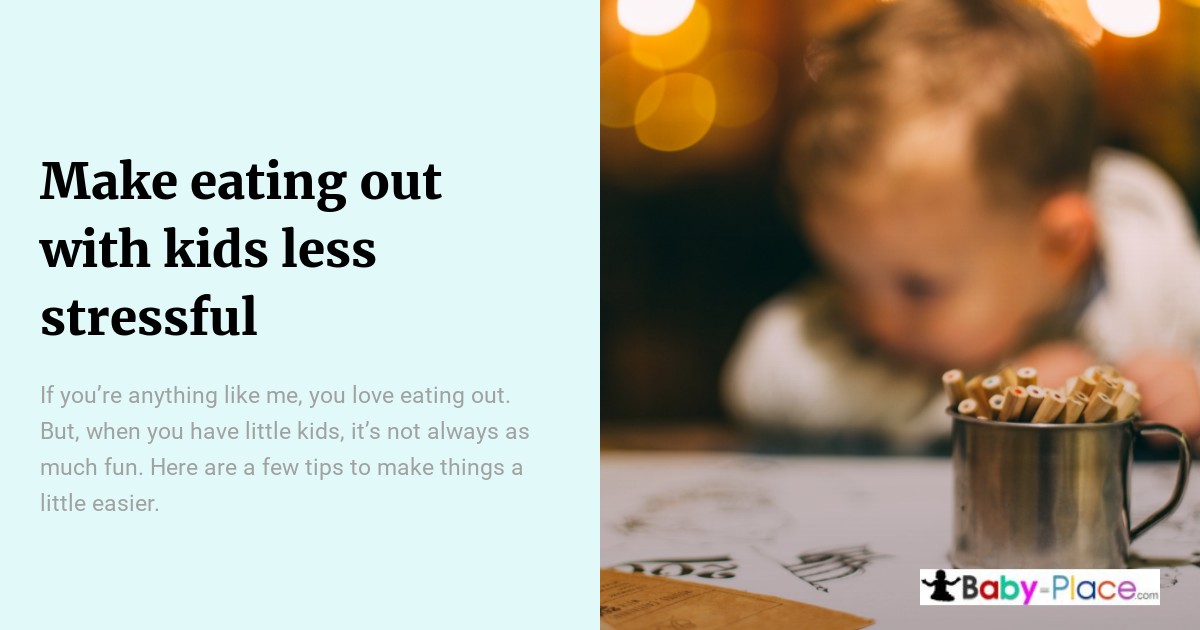Raising a special needs toddler can be a challenging experience. As parents, we want to make sure that our children are receiving the best care possible in order to help them reach their full potential. We all know how important it is for toddlers with special needs to get the right support and education so they can thrive.
But what should you do as a parent or guardian of such a child?
In this article, I will discuss some essential tips on providing your special needs toddler with the appropriate level of care and attention. From creating a safe environment at home to finding the right resources and support systems, there are many ways that you can ensure your little one receives the quality care they deserve.
Finally, I’ll provide advice on helping your infant develop socially as well as emotionally during this crucial stage of development. With my guidance, you will have the confidence necessary to effectively meet your special needs toddler’s unique educational requirements and provide them with a strong foundation for success down the road. Let us begin!
Definition Of Special Needs Toddler
A special needs toddler is one who has a developmental, physical, emotional, or behavioral disorder that requires additional support and assistance.
According to the CDC, approximately 1 in 6 children in the U.S. have been identified with having some type of disability. This can be anything from an intellectual disability such as Down Syndrome or Autism Spectrum Disorder (ASD), to chronic health issues like asthma or diabetes.
Special education teachers and advocates understand how important it is for these toddlers to receive the best care possible so they can reach their fullest potential despite any challenges they may face. Parents and guardians need to take steps to ensure their special needs toddler receives all necessary resources throughout their development process.
Assessment And Diagnosis
When it comes to your special needs toddler, the first step is assessment and diagnosis. Before any interventions can be developed or implemented, a formal evaluation should be conducted to identify the child’s strengths and areas of need.
This process typically involves multiple assessments from different professionals including psychologists, speech-language pathologists, physical therapists, and other specialists who may have the relevant expertise for the individual case.
| Therapist/Specialist | Description |
|---|---|
| Pediatrician | A medical doctor specializing in the care and treatment of infants, children, and adolescents. They can help identify any medical issues or developmental delays in your special needs toddler. |
| Developmental Pediatrician | A pediatrician with additional training in the development and care of children with special needs. They can assess, diagnose, and manage developmental and behavioral issues in toddlers. |
| Occupational Therapist | A professional who helps children with special needs improve their fine motor skills, sensory processing, and daily living skills, enabling them to function more independently. |
| Physical Therapist | A specialist who works with children to develop and improve their gross motor skills, strength, balance, and coordination, which may be delayed or impaired in special needs toddlers. |
| Speech-Language Pathologist | A therapist who assesses and treats communication and swallowing disorders, helping toddlers with special needs improve their speech, language, and feeding skills. |
| Special Education Teacher | An educator trained to teach and support children with special needs, adapting teaching methods and materials to address each child’s unique learning style and challenges. |
| Board Certified Behavior Analyst (BCBA) | A professional who designs and implements Applied Behavior Analysis (ABA) therapy programs to help special needs toddlers improve their communication, social, and behavioral skills. |
| Child Psychologist | A psychologist specializing in the assessment, diagnosis, and treatment of emotional, behavioral, and developmental issues in children, including those with special needs. |
The results of these assessments are used to develop an Individualized Education Plan (IEP) that outlines measurable goals with strategies tailored specifically to meet the needs of your child.
Each IEP includes an annual review so that progress can be monitored on an ongoing basis. With this plan in place, you as parents will be better informed about how best to support your special needs toddler’s development at home and in school settings.
Early Intervention Services
For parents of special needs toddlers, early intervention services provide an opportunity to identify potential developmental delays and intervene accordingly. Early intervention can make a world of difference in the life of your child – it’s important not to wait!
Here are five key benefits that come with early intervention services:
- You will be able to discover any areas where your child is at risk for developmental delays or disabilities.
- A team of professionals such as pediatricians, speech therapists, physical therapists, occupational therapists, psychologists, and social workers will work together to develop an Individualized Family Service Plan (IFSP) tailored specifically to your child’s needs.
- Through IFSP you will have access to specialized therapies designed to improve communication skills and daily living activities.
- Early interventions may help reduce the severity of existing conditions by providing comprehensive care for infants and young children.
- Professional guidance can equip families with strategies needed for successful parenting practices and provide support throughout their journey as a special needs family.
Early intervention isn’t just about medical attention; it also provides emotional support through counseling and education which helps prepare families for what lies ahead on their unique path. With this type of assistance available from trained specialists, parents can feel more confident navigating through unknown territory while supporting their toddler’s growth along the way.
Taking advantage of these resources gives families hope for greater independence in their future – something every parent wants for their child regardless of ability level!
Developmental Milestones
It’s important to remember that all children develop at their own pace, and this is especially true for special needs toddlers. When it comes to developmental milestones, they may take longer or need more assistance compared to their typically developing peers. As a special education advocate or teacher, you can help your toddler reach these milestones through activities tailored specifically to the child’s individualized needs.
These activities should be fun and engaging while also being developmentally appropriate. For example, if your toddler isn’t yet able to walk independently, you could practice walking with them in different settings such as inside the home and outside in grassy areas.
Additionally, teaching sign language can provide an alternative form of communication before verbal language develops fully – which often happens later than average in special needs toddlers. It’s best to find creative ways to engage with your toddler based on what works best for them; each one is unique!
Educational Resources
Many communities have organizations that specialize in providing support and guidance for families with children who have special needs. These can be great places to find out more about what kinds of supports are available and how they might benefit your child.
You may also want to explore other options such as online learning or public schools that offer specialized programming tailored specifically towards those with special needs. There is no one-size-fits-all solution when it comes to meeting the unique developmental needs of special needs toddlers, so exploring different forms of education can help you determine which type works best for your family’s situation.
Ultimately, ensuring that your child has access to quality educational resources will set them up for success now and in the future.
Therapeutic Approaches
Given the unique needs of special needs toddlers, it is important to consider therapeutic approaches beyond traditional educational resources. Therapeutic interventions can provide invaluable support for parents and caregivers as they strive to provide a safe, nurturing environment for their children.
One approach that has been found to be particularly beneficial in helping special needs toddlers reach developmental milestones is applied behavior analysis (ABA).
ABA involves breaking down tasks into small steps or components and providing positive reinforcement at each step. This type of therapy helps children learn new behaviors while decreasing problem behaviors, so it’s an especially useful tool for teaching self-help skills such as dressing and toileting. Speech and language therapy can also be helpful in improving communication skills and building a better connection between parent and child.
Occupational therapy is another form of therapeutic intervention that may be beneficial for special needs toddlers. OT focuses on developing daily living skills like feeding themselves, brushing their teeth, playing with toys, etc., all within the context of maximizing independent functioning.
It is often used alongside physical therapy if there are motor delays present in the child’s development too.
Finally, music therapy offers many benefits including social interaction and learning cause-and-effect relationships through musical instruments – both activities have been shown to stimulate language development in young children with disabilities.
No matter which therapeutic approach(es) you decide to pursue, it’s important to remember that every child is different – what works well for one might not work as well for another! Therefore, it’s essential that parents take time to explore various options until they find something that fits their toddler’s individual needs best.
Nutrition And Diet
It’s important to ensure that your special needs toddler is receiving the proper nutrition and diet for their individual needs. Talk with your doctor about what kind of foods are best for them, as well as any necessary supplements they should be taking in order to get a balanced diet.
If you’re unsure of what kinds of food your child can eat or how much, create a meal plan with the help of a registered dietitian or nutritionist. They’ll be able to provide guidance on which foods will meet their dietary requirements and make sure they’re getting all the essential vitamins and minerals they need.
The most important thing when it comes to feeding your special needs toddler is making sure meals are full of nutritious options that appeal to their individual tastes. Try incorporating some new flavors into their diet while still offering familiar favorites so there’s something for everyone. Make sure mealtimes are calm and enjoyable by including plenty of positive reinforcement if they try something new.
This helps build healthy habits that can last throughout life!
Home Safety Considerations
It is essential that caregivers of special needs toddlers take home safety considerations into account. As a parent or caregiver, it’s your job to make sure the environment they are living in is safe and secure. There are several steps you can take to ensure their safety at home:
First, assess the areas where your toddler spends time. Look for potential risks such as sharp edges, small objects that could be swallowed, electrical outlets, stairs, and other furniture. Make sure they have access to age-appropriate toys and materials so they can explore safely. Also, consider baby gates and locks on certain drawers or cupboards if needed.
Next, consider any medical equipment your child may need while at home. This includes wheelchairs or mobility aids which should be regularly checked for wear and tear or damage. Some children may require additional support which means having assistive devices available such as ramps, lifts, or adapted seating – all these must meet safety standards and regulations.
Additionally, create an emergency plan with instructions on how to respond in case of fire, earthquake, or power outage. Taking proactive measures like this will help ensure your special needs toddler stays safe at home.
Socialization Strategies
When it comes to socialization, parents of special needs toddlers need to be creative. There are several strategies that can be employed to help foster a sense of belonging and acceptance in their child’s life. First and foremost, it is important to create an inclusive environment for your toddler at home with siblings, friends, neighbors, and family members.
This will not only provide the opportunity for them to interact with others but also give them the chance to practice their communication skills. Additionally, taking part in activities such as music classes or playgroups specifically designed for special needs children can allow your toddler to connect with peers who share similar experiences.
Parents should also strive to find ways to introduce their children to mainstream society whenever possible. Inviting classmates over or attending local events together provides opportunities for meaningful interactions outside of the home setting while instilling confidence in your toddler’s ability to participate within a larger community.
Encouraging positive relationships with those around them by teaching proper etiquette and introducing helpful tools like visual schedules helps further develop social capacities. By implementing these techniques, you can encourage your child’s growth both socially and emotionally in order to make sure they excel beyond expectations.
Behavioral Management Techniques
Behavioral management techniques can be an effective way to help a special needs toddler learn and grow. It is important for parents and caregivers to remember that each child will have different ways of responding to certain behaviors, so it is best to tailor their approach based on the individual’s unique needs.
| Technique | Benefits | Drawbacks |
|---|---|---|
| Positive Reinforcement | Builds trust between parent/caregiver & child | This may lead to over-indulgence or reliance on rewards for good behavior |
| Modeling Behavior | Can provide a clear example of how your child should behave in specific situations | Cannot always replace verbal instruction; may need additional guidance if misinterpreted by the child |
| Redirection | Provides distraction from current behavior; encourages positive interaction with others or activities instead | Not all children are responsive to redirection; may become overwhelmed when presented with too many options at once |
It is essential for parents and caregivers who work with a special needs toddler to find behavioral management techniques that work for them and their child.
By utilizing these strategies, they can create a safe and nurturing environment where their little one feels secure in learning new skills. Furthermore, these techniques can also strengthen the bond between parent/caregiver and child as well as foster independence into adulthood.
As such, it is important to ensure that these methods are used properly and consistently in order for them to be successful. With patience, consistency, and understanding, parents/caregivers can create an atmosphere of acceptance and progress for their special needs toddler.
Positive Parenting Practices
With understanding, patience, and kindness, positive parenting practices can help create a nurturing environment for your special needs toddler. Positive reinforcement is key when it comes to developing the bonds between you and your child. Acknowledge their successes no matter how small; this helps them build self-confidence and encourages them to keep trying. Showing unconditional love and support will foster an atmosphere of trust that allows for open communication about struggles as well as triumphs.
It’s important also to set boundaries and provide structure for daily activities in order to promote independence and responsibility. Routines should be kept consistent throughout each day so that your child knows what to expect from their environment.
Make sure to break down tasks into smaller chunks if needed, which makes it easier for children with developmental delays or sensory issues to stay on task. Finally, be creative when finding ways to engage your special needs toddler – try involving different senses like sound, sight, smell, taste, and touch while playing together!
Finding Support Networks
It is important to find support networks that can help you care for your special needs toddler. There are a variety of resources available, and it’s worth taking the time to research them thoroughly. The first place to look should be your local community. Look into what organizations, programs, or activities may offer specialized services tailored toward children with disabilities. It could also be beneficial to join support groups specific to parents of children with special needs so you can share stories and gain knowledge from other people in similar situations.
Another resource that may provide assistance is professional caregivers who specialize in working with disabled children. Working with these professionals can give you insight into how best to respond to different behaviors and challenges, as well as provide extra hands-on support when needed.
Additionally, if necessary, consider looking into respite care options that allow for temporary relief from caring for your child when you need it most.
Whatever option(s) you choose, remember that having a supportive network behind you will make all the difference in helping ensure your little one reaches their full potential!
Financing Treatment Options
When it comes to financing treatment options for a special needs toddler, there are several sources that parents can explore. The first is insurance coverage. Most health insurers cover at least some of the expenses associated with medical care and therapies for children with disabilities. It’s important to know what your policy covers and which providers you can use.
Families may also be eligible for assistance from federal or state programs such as Medicaid or Supplemental Security Income (SSI). If these don’t apply, they may qualify for other types of financial assistance—for instance, scholarships through organizations like Easter Seals or United Way.
Private foundations often provide grants specifically designed to help families who have toddlers with special needs pay for treatments and equipment. Finally, many communities offer resources such as respite services that can make life easier financially and emotionally.
It’s best to research all available options so you can determine what will work best in your particular situation. With careful planning and resourcefulness, parents of special needs toddlers can find the support they need to get their child the care he deserves.
Transition Planning To Adulthood
When it comes to your special needs toddler, transition planning is key. It’s important that you begin thinking about and preparing for the future as soon as possible. In terms of transitioning from school-age services to adult services, there are some steps you’ll need to take in order to ensure a successful outcome.
First, start by researching state regulations and requirements regarding transitioning students with disabilities into adulthood. Familiarize yourself with any laws or policies concerning special education eligibility criteria, accommodations, resources available, etc., so you can make informed decisions when it comes time to move forward.
Next, look at what kind of support may be necessary for your child once they leave school such as vocational training programs or employment opportunities. Consider other types of assistance such as housing options, health care coverage, and recreational activities that could help them lead an independent life.
Finally, develop a comprehensive plan outlining how best to support their individual needs during the transition process which includes regular monitoring and evaluation of progress towards achieving goals set out in the plan. With these preparations made ahead of time, your child will have a smoother transition into adulthood!
Mental Health Support
When thinking about what you should do for your special needs toddler, mental health support should be an essential part of the plan. Mental health challenges can present themselves in various ways, including poor self-regulation skills or behaviors such as aggression, defiance and anxiety.
It’s important to remember that these behaviors don’t always stem from bad parenting – they can come from a lack of understanding or coping mechanisms to deal with overwhelming emotions. That’s why providing mental health support is so vital in helping your child develop healthy emotional regulation strategies.
There are many resources available for parents of special needs children who need help identifying and addressing their child’s mental health issues. You may consider speaking with a clinical psychologist or other specialists who specializes in treating children on the autism spectrum or other developmental disabilities.
However, there are also resources available online that provide information on how to recognize signs of stress and anxiety in your child and offer tools for managing them. Additionally, attending workshops, conferences, and parent groups tailored towards supporting families living with special needs can also give you valuable insight into how best to meet your child’s unique needs.
Conclusion
It’s important to remember that every special needs toddler has their own unique set of gifts and challenges. As a parent or caregivers, it is our responsibility to provide them with the resources they need to thrive and reach their full potential. With the right assessment and diagnosis, early intervention services, educational resources, support networks, treatment options, transition planning into adulthood, and mental health support available, we can help ensure that each special needs toddler is given the best chance possible for success in life.
By standing up together for what we believe in and taking action toward creating a better world for those living with disabilities today we can hopefully create greater change tomorrow. It is my hope that together we can cultivate an environment where everyone is accepted regardless of any differences they may have – because at the end of the day – isn’t unconditional love what truly matters?
Resources
Below is a list of resources and organizations in the United States that provide support and assistance to parents of special needs children:
- National Dissemination Center for Children with Disabilities (NICHCY) Website: https://www.parentcenterhub.org/ Provides information and resources on disabilities, special education, and related services for families and educators.
- Autism Speaks Website: https://www.autismspeaks.org/ Offers resources, advocacy, and support for individuals with autism and their families.
- The Arc Website: https://thearc.org/ Advocates for and supports individuals with intellectual and developmental disabilities and their families.
- Family Voices Website: https://familyvoices.org/ Connects families with resources and support networks for children with special health care needs.
- Parent to Parent USA (P2P) Website: https://www.p2pusa.org/ Offers emotional support and information for parents of children with special needs by connecting them with experienced and trained peer mentors.
- United Cerebral Palsy (UCP) Website: https://ucp.org/ Provides resources, support, and advocacy for individuals with cerebral palsy and other disabilities.
- National Down Syndrome Society (NDSS) Website: https://www.ndss.org/ Offers information, resources, and advocacy for individuals with Down syndrome and their families.
- Children and Adults with Attention-Deficit/Hyperactivity Disorder (CHADD) Website: https://chadd.org/ Provides resources, support, and advocacy for individuals with ADHD and their families.
- Learning Disabilities Association of America (LDA) Website: https://ldaamerica.org/ Supports individuals with learning disabilities, their families, and professionals through resources, advocacy, and education.
- National Federation of the Blind (NFB) Website: https://www.nfb.org/ Offers resources, support, and advocacy for individuals who are blind or visually impaired.
- American Speech-Language-Hearing Association (ASHA) Website: https://www.asha.org/ Provides resources and information on speech, language, and hearing disorders for parents and professionals.
- National Association of the Deaf (NAD) Website: https://www.nad.org/ Advocates for and supports individuals who are deaf or hard of hearing and their families.
These organizations offer valuable resources, support, and advocacy for parents of special needs children in America. Reach out to these organizations to find local chapters or affiliates that can provide additional assistance tailored to your child’s specific needs.










